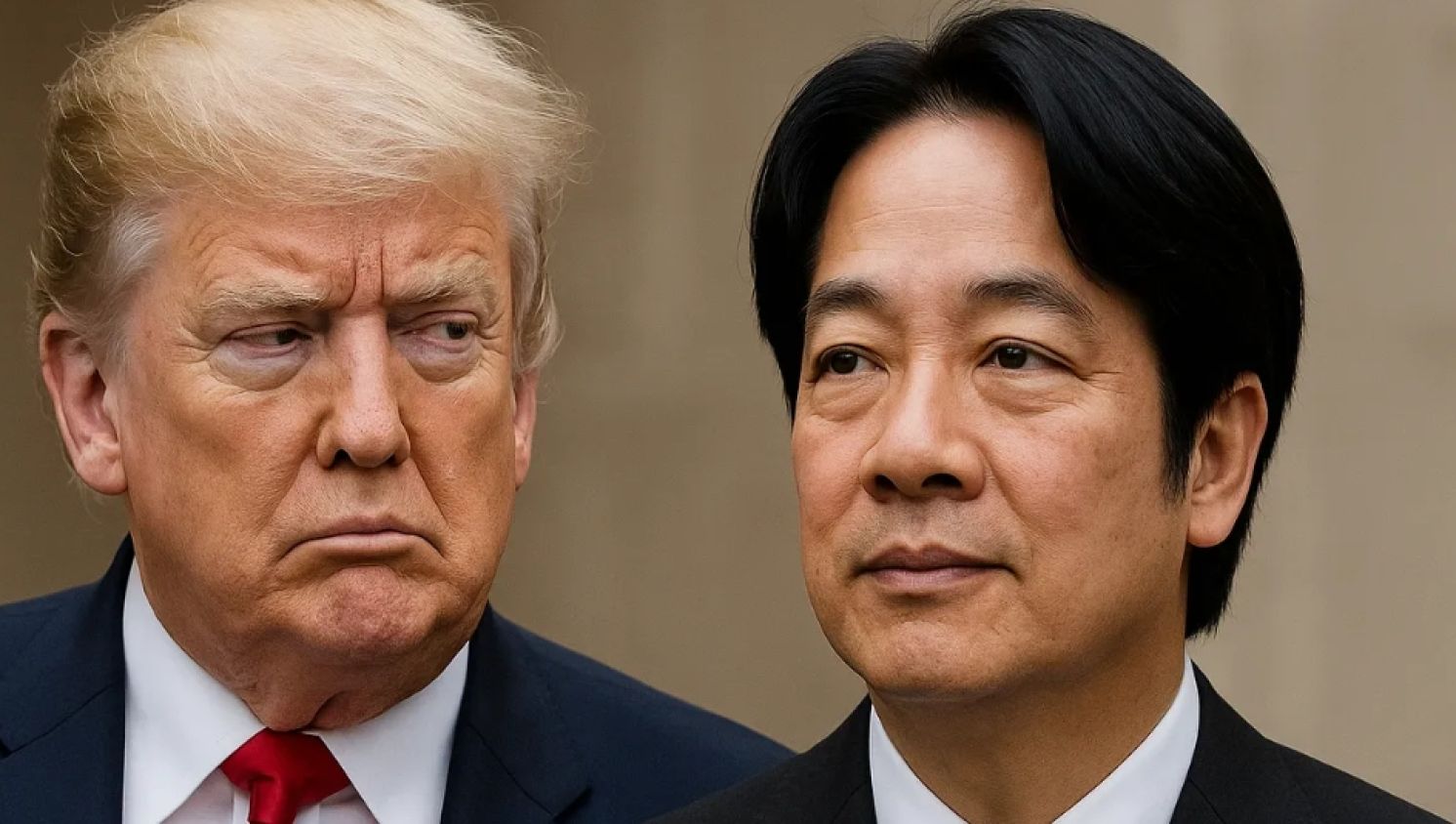
Taiwan Has Lost Direction, Not Trump
By Dennis Weng, The Storm Media, August 13, 2025
Recently, the ruling party has faced two major setbacks: a crushing defeat in the first round of recall votes and failure in tariff negotiations with the United States. Taiwan now faces a 20-percent reciprocal tariff on top of existing rates—higher than those imposed on Japan, South Korea, and even some Southeast Asian countries—while reports emerged that a planned U.S. transit stop was canceled due to Washington’s concerns over Beijing’s reaction. Even voters loyal to the ruling party cannot deny that U.S.-Taiwan relations are no longer the diplomatic highlight that they were under former President Tsai Ing-wen.
Despite both administrations being under the Democratic Progressive Party (DPP), the contrast is stark. President Tsai’s familiarity with international affairs, combined with the Biden administration’s establishment-driven globalist framework and coordinated by then Ambassador Hsiao Bi-khim, representative to the United States, successfully merged the narrative of “democratic values + alliance relations” with U.S.–China tensions, ensuring Taiwan’s strategic importance remained visible in Washington. In contrast, President Lai Ching-te’s understanding of international affairs is limited, he lacks trust in the continuity of Tsai’s diplomatic team, and Vice President Hsiao has far less influence on foreign policy decisions than anticipated. Whether or not Hsiao’s closer ties to the Democratic Party are a factor, her deep understanding of the U.S. political ecosystem clearly has not been brought into the current decision-making core.
Complicating matters is that with President Donald Trump’s return to office, the United States has shifted from value-driven diplomacy to an “America First” framework. In Mr. Trump’s view, Taiwan’s importance is no more than “the size of a pencil tip.” Yet more serious than declining diplomatic performance is the Lai administration’s attitude toward criticism and advice. In his article How Taiwan Lost Trump, former Trump adviser Christian Whiton criticized Taipei’s strategic missteps. While some claims were exaggerated, many American experts on Taiwan, including Bonnie Glaser, agree that the piece reflects some truth.
Regrettably, the ruling party’s first reaction was not self-reflection, but to question whether Whiton was “harboring grudges,” even portraying all advice as part of a so-called “U.S.-skepticism” campaign, blaming Beijing and pro-China forces within Taiwan. In diplomacy, it is not that one cannot rebut criticism, but rather how—whether to put the other side at fault or to deepen their resentment. If the critic still wields influence within Mr. Trump’s circle, is such a reaction truly in Taiwan’s interest?
Looking back, former presidents Tsai and Ma Ying-jeou, though following different political paths, both showed vision and pragmatism in managing U.S. relations at certain points. In 2019, when Taiwan was excluded from the U.S. Indo-Pacific Economic Framework (IPEF), the Tsai administration refrained from publicly complaining or mobilizing public opinion. Instead, it quietly launched cross-ministerial, multi-level engagement, with the Ministry of Foreign Affairs, Ministry of Economic Affairs, and the Taipei Economic and Cultural Representative Office in the United States separately reaching out to pro-Taiwan members of Congress, business associations, and the White House economic team—laying the groundwork for the later “U.S.-Taiwan Initiative on 21st Century Trade.” Under Ma’s administration in 2008, when the United States suspended Trade and Investment Framework Agreement (TIFA) talks over a U.S. beef import dispute, despite strong domestic backlash, Taipei avoided direct public confrontation with Washington or domestic critics. Instead, it negotiated in stages with the U.S. Congress Agriculture Committee, state governments, and the U.S. Meat Export Federation, gradually resolving the dispute and exchanging food safety measures for the resumption of talks. In both cases, the presidents faced domestic political pressure, but their focus was not on silencing criticism or suppressing opposition voices—it was on pragmatically addressing U.S.-related challenges to keep bilateral interactions stable.
Maintaining good relations and pragmatically resolving disputes are the highest priorities in U.S.-Taiwan diplomacy, and the current tariff negotiations are a prime example. When Mr. Trump actively seeks deals with China, Beijing’s bargaining chips—market size, purchase commitments, and geopolitical influence—far outweigh Taipei’s. No matter what Taiwan offers, it is unlikely to outweigh China’s value in Mr. Trump’s eyes. However, if Mr. Trump’s inner circle includes voices friendly to Taiwan, such as NVIDIA chief executive Jensen Huang’s comments on chip tariffs, then Taiwan may still secure exemptions or transitional relief. In the Trump era, U.S.-Taiwan relations are not about value alliances but about personal networks and interest-based exchanges. Taiwan’s overseas representatives, including Vice President Hsiao, are well aware of these diplomatic nuances, but clearly, their advice has not been heeded.
At a time when Taiwan faces setbacks in its U.S. relations, the public should be seeing the government working actively and pragmatically to repair ties. Instead, the ruling party has focused on discrediting American commentators, smearing domestic critics as pro-China, and even pressing ahead with a second wave of recall votes—attempting to use domestic political maneuvers to divert attention from U.S. pressure and criticism that U.S.-Taiwan ties are not what they once were. In fairness, the current state of U.S.-Taiwan relations is not due to Taiwan being insufficiently pro-American, but to the Trump administration’s perception of Taiwan, which has introduced constraints in bilateral ties. Even so, Taiwan still retains some value in American eyes; the key is how to convey Taiwan’s voice to Mr. Trump through pragmatic and flexible diplomacy. Whether leaders are willing to respect expertise, value advice, and learn from mistakes is what truly matters.
Frankly, Whiton was not entirely correct—because Taiwan has not lost Mr. Trump; it has lost its direction.
The author is associate professor at the Department of Political Science, Sam Houston State University.